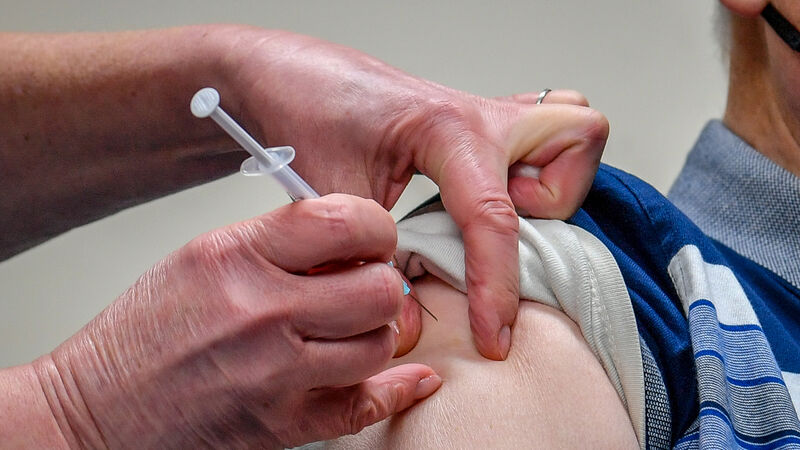Germany expects limited EU approval for AstraZeneca vaccine

A dose of the Oxford University/AstraZeneca COVID-19 vaccine is given to a patient. File picture
Germany’s health minister has said he expects the European Union’s drug regulator to authorise a further coronavirus vaccine made by AstraZeneca on Friday, but that currently available data may mean it is not recommended for older adults.
Jens Spahn said authorities are waiting to see what advice the European Medicines Agency (EMA) issues with regard to vaccinations for people over 65, and Germany would then adjust its own guidance for doctors in the country.











